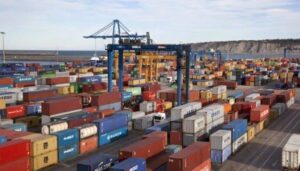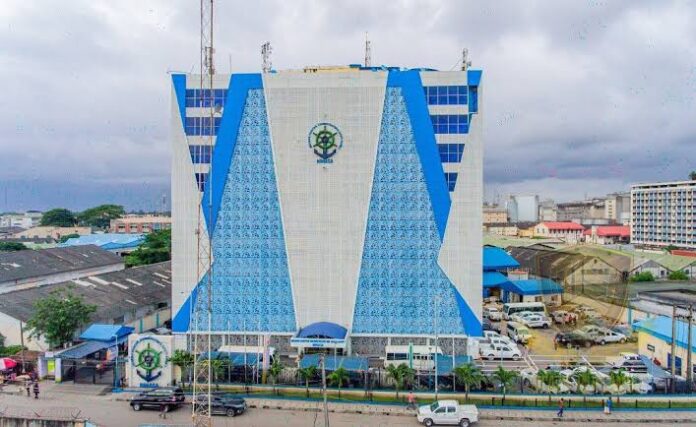At least three shipping companies have allegedly failed to pay over $79.9 million (more than N119 billion at an exchange rate of N1,505) in levies to the Nigerian government. These companies, which serve as collection agents for the Nigerian Maritime Administration and Safety Agency (NIMASA), are suspected of colluding with some management staff at NIMASA to withhold these funds.

The companies involved are Daddo Maritime Services Limited, Blueseas Maritime Services Nigeria Limited, and Divine Marine Shipping Services Limited. These firms have not paid the required 3% levies, 2% cabotage surcharge, and offshore waste and sea protection levies since 2004.
Daddo Maritime Services, founded in 1981, is owned by Alhaji Bamanga Tukur, a former Chairman of the People’s Democratic Party (PDP). Blueseas Maritime Services was incorporated in 2003 and is currently led by Hon Chris Nkwonta, a member of the Federal House of Representatives. Divine Marine Shipping Services started operations in 1998 and has evolved from an oil shipping agency to offering full shipping services.
Despite past efforts, including the involvement of security agencies, to recover the funds, the companies have resisted payment. Daddo Maritime Services owes about $34.5 million, Divine Marine Shipping Services owes $11.8 million, and Blueseas Maritime Services owes $33 million.
The companies have been accused of diverting levies from crude oil and liquefied petroleum gas (LPG) exports and imports for other uses. Sources within the maritime sector allege that these debts have accumulated over 20 years.
According to section 22(1) of the NIMASA Act 2007, the agency is responsible for promoting, regulating, and administering public policies in the maritime sector. Despite efforts by NIMASA to get the companies to pay, the firms have largely avoided accountability. Some NIMASA officials allegedly protected these companies, allowing them to evade the law.
A maritime expert, who requested anonymity, described the situation as a significant violation of the NIMASA Act. The expert said the companies have accrued substantial debts and flouted the law since 2004. Another insider in the maritime sector blamed NIMASA’s leadership for failing to enforce compliance and hold the companies accountable.
Efforts to reconcile the debts have been ongoing. Blueseas Maritime Services’ Managing Director, Franklin Nze, stated that reconciliation has been in process since 2020 and payments are being made to clear the backlog. He emphasized that his company is reputable and committed to resolving the issue.
Divine Marine Shipping Services’ representative, Mr. Kola Olapoju, admitted that their company owes the government. He claimed that some retired NIMASA officials who initiated the deals are now spreading the allegations. Olapoju hinted at systemic fraud and threatened legal action if his or his company’s names were mentioned in the report.
Efforts to reach Daddo Maritime Services for comment were unsuccessful. The company’s spokesperson, Mrs. Dorcas, could not be contacted.
In response to the allegations, NIMASA’s Head of Public Relations, Osagie Edward, confirmed that the agency is investigating the matter. The current management, led by Dr. Dayo Mobereola, has implemented measures to block revenue leakages and reduce human interference in operations. Edward assured that those found guilty would face the law, regardless of their status.
Maritime experts have called for a thorough review of the companies’ debt profiles and practices. They stressed the importance of holding those responsible accountable for defrauding the government. A letter from a group of maritime experts to the NIMASA director-general urged a comprehensive investigation into the companies’ activities and the entities responsible for revenue collection since 2004.
The experts emphasized the need for decisive action to address the issue and prevent future occurrences, highlighting the systemic failures in oversight and enforcement by previous NIMASA management. The situation underscores the need for robust reforms in Nigeria’s maritime sector to ensure transparency and accountability in revenue collection.
Victoria Ibiama




